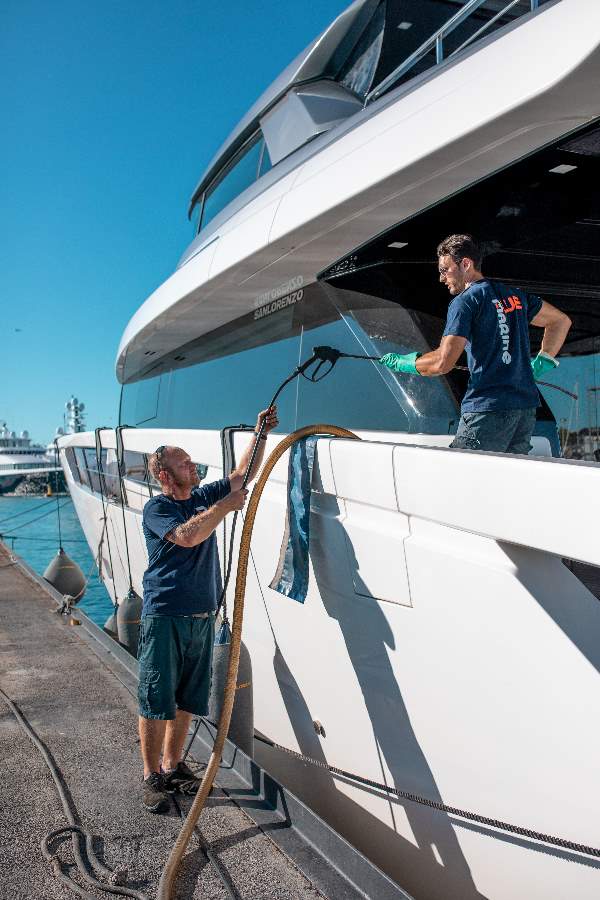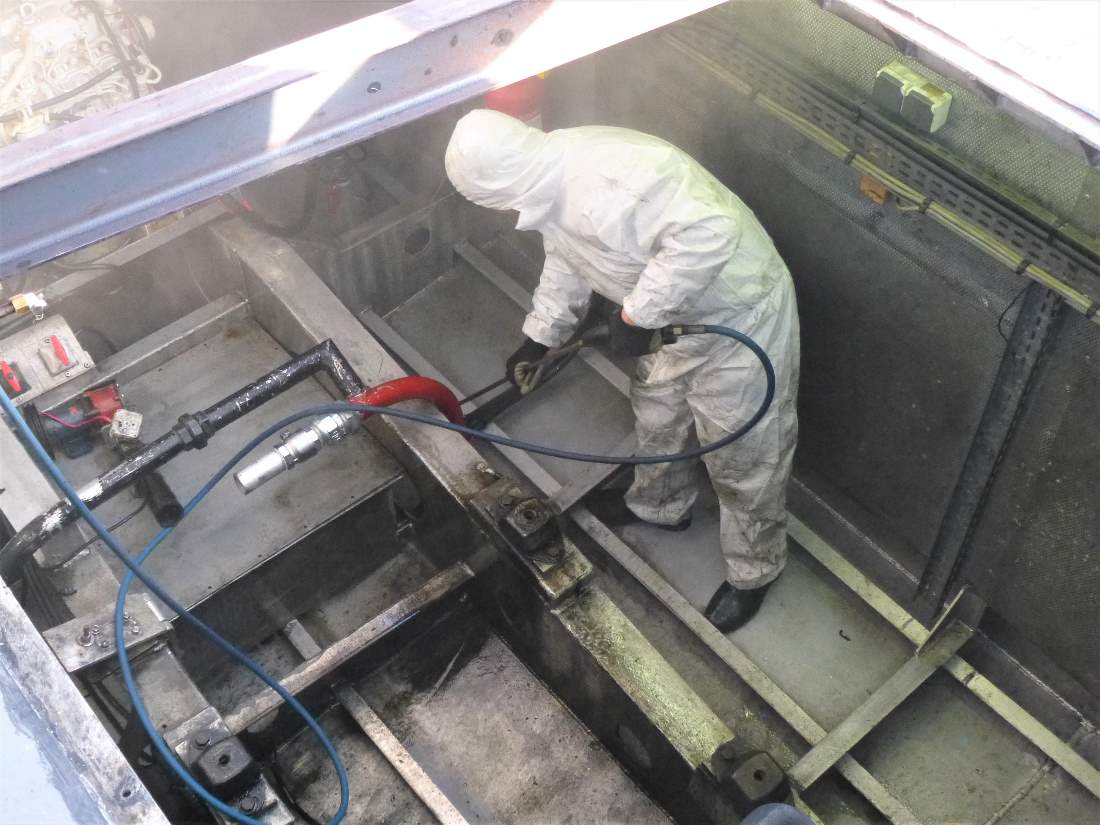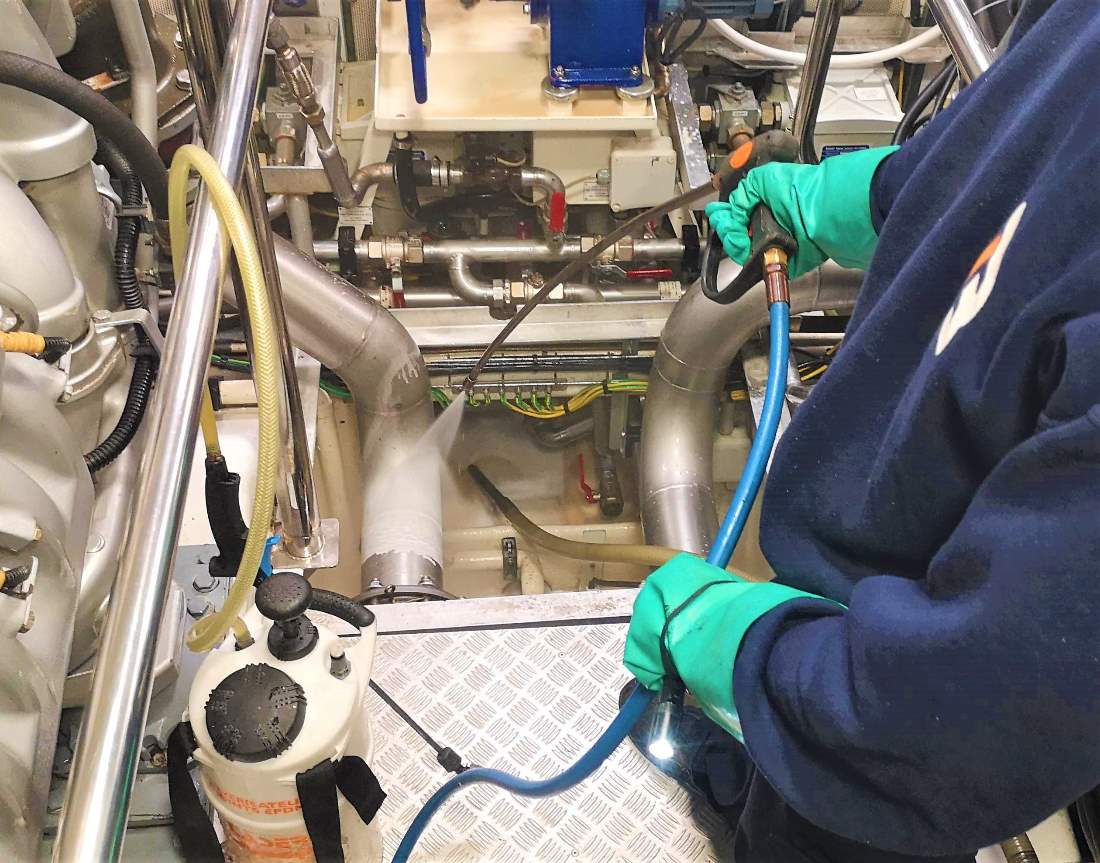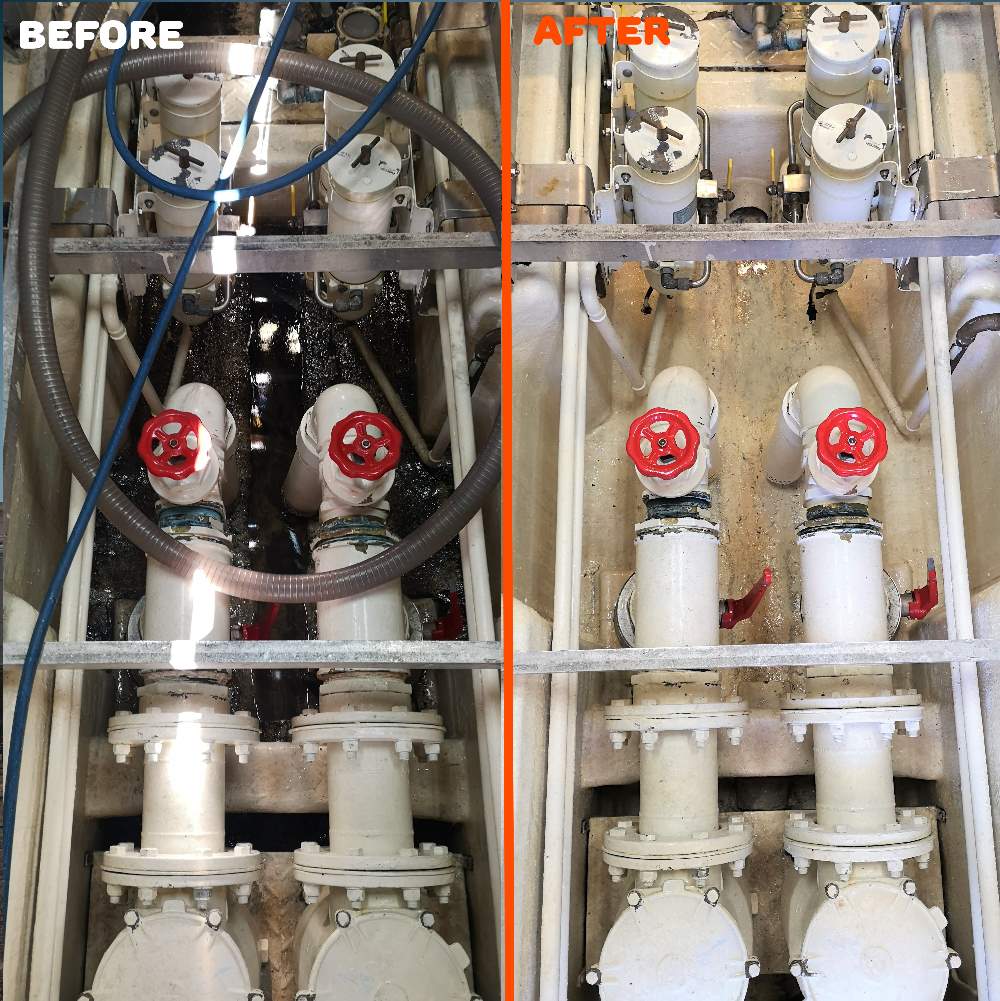Cleaning : Bilges
The engine room of a ship holds the main engines, generators, auxiliary devices, and fuel, oil, sea water tanks and circuits, etc.

Cleaning a bilge
During the use of the machine, the maintenance of the engines (draining), and because of varied leaks and spills, a mix of waters and
hydrocarbons is found in the bilge.
ADR

Regarded as hazardous and subject to ADR (Road Transportation of Hazardous Materials), this waste is a risk for man and for the environment. That’s why the collection, storage and treatment of the waste must be entrusted to qualified and skilled professional technicians.
Link to ADR details here.
It is necessary to keep bilges empty and clean to avoid any accidental pollution (Bilge pump trip) and prevent the risk of equipment
corrosion.
Having access to clean bilges is essential to the chief engineer so as to carry out maintenance, repairs, and identify the cause of
possible leaks.
The cleaning of bilges on ships requires a high level of training and skills.
The engine rooms have sophisticated and sensitive equipment, vulnerable electric components which require great care during cleaning.
That’s why our technicians are properly trained and apply a cleaning procedure as well as strict safety protocols.






